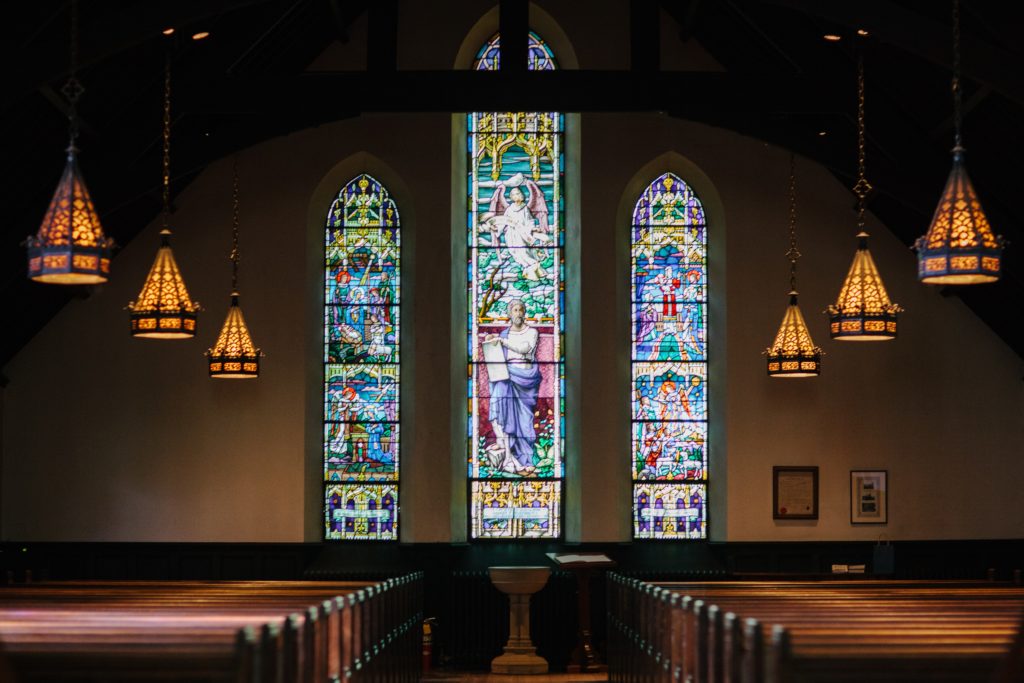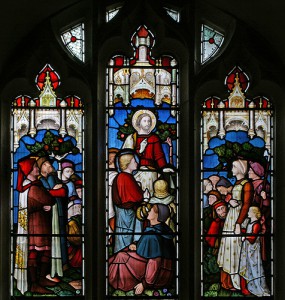
Christians are not only reconciled to God, but also to His people. God is not saving a constellation of individual Christians encapsulated from one another, He is saving a people, gathering a nation – and you’ll never understand who you are or what you are as a Christian if you think of yourself only in individual terms. You’ll really only understand yourself and your life as a Christian in the context of church.
How would you answer the question: What is church? What does the Bible say about it? In really simple terms, you start with Jesus Christ – He’s the Savior and Lord. Christians are those who trust in Christ as their Savior and follow Him as their Lord, and the church is just all the Christians. Now, there is the “universal church” that includes all Christians from everywhere from all of history, and then there is the “local church” like Dulin’s Grove.
If you read your Bible, though, you’ll realize that the church is way more mysterious and glorious than that. Ephesians 2:19-22 is a great passage to get at this because it mixes three images of the church together: citizenship, family and a building.
Citizens of God’s Kingdom
So then you are no longer strangers and aliens, but you are fellow citizens with the saints …
– v. 19a
Christians are not only reconciled to God, but also to His people. God is not saving a constellation of individual Christians encapsulated from one another, He is saving a people, gathering a nation – and you’ll never understand who you are or what you are as a Christian if you think of yourself only in individual terms. You’ll really only understand yourself and your life as a Christian in the context of church.
“You are fellow citizens with the saints” means that Jews and Gentiles are one group. Married people and single people, white collar guys and blue collar guys, people from every race and every socioeconomic situation … fellow citizens. If you meet someone from another nation who is a fellow Christian, you’ll find there to be a shared patriotism that is even deeper than you might share with a fellow American who is not a Christian.
Members of God’s Household
… and members of the household of God …
– v. 19b
That is family language. When someone is saved, they are adopted by God the Father into His family, and this is another way of understanding what the church is.
A Holy Temple
… built on the foundation of the apostles and prophets, Christ Jesus himself being the cornerstone …
– v. 20
The foundation and the cornerstone are what give stability and shape to a structure. It’s Jesus Christ and His Word that are the basis of the church – without them, the church collapses into individually disconnected rubble. But if we remain atop Jesus and the Bible, we stick together and are built into a temple:
… in whom the whole structure, being joined together, grows into a holy temple in the Lord. In him you also are being built together into a dwelling place for God by the Spirit.
– vv. 21-22
This is a beautiful image of a building, but one that grows. The temple was the place where God’s presence was specifically made manifest to His people. But now it’s not a place: the people are the place. God is not consecrating places, He is consecrating people.
We have to be careful not to confuse place and people. We should hesitate to use phrases like “house of God” to refer to the church building because we are the house of God. Dulin’s Grove Church is a people. We are fellow citizens with the saints, we are members of the household of God and we are being built and grown into a holy temple.
Understanding the Local Church
All this is true of the universal church, but what about the local church? How are we to understand local churches in light of the universal church? To answer: The local church is the context in which we experience and participate in the universal church. That’s where things are made real and concrete.
Now you might ask, “Can I be a Christian and not go to church?” Well, church is not a place to go, it’s a people to be – so right off it doesn’t make any sense. But the simple answer is no. The majority of what God tells us to do as Christians can only be done in the context of the church. There is much more written in the Epistles about what we need to be doing for and with the church than about evangelism, so to be a Christian and not go to church is to ignore most of what the New Testament says. The church is absolutely essential to everything God means to do in and through us.
So let’s lean into our citizenship, our family relationships in the household of God and this building project, wherein we are being built up to be a temple. Let’s view each other through these biblical lenses. Let’s base all that we do on Jesus Christ and His Word. Let’s think in terms of people not place when we think of the church. Let’s not attend church as individuals, but be the church together. And let’s renew our commitment to the universal church by renewing our commitment to the local church.
Discussion Starters
1. How would you define the word “church”?
2. What are some commonly held misconceptions about church?
3. How does this passage correct some of those misconceptions?
4. Citizenship, household, and temple. Which image do you find most helpful in understanding the church? Why?
5. Why is it important to remember that Jesus Christ is the cornerstone of the church?
6. What would change if we began to live perfectly in light of this passage?
7. What is one concrete step you will take this week in response to this passage?







